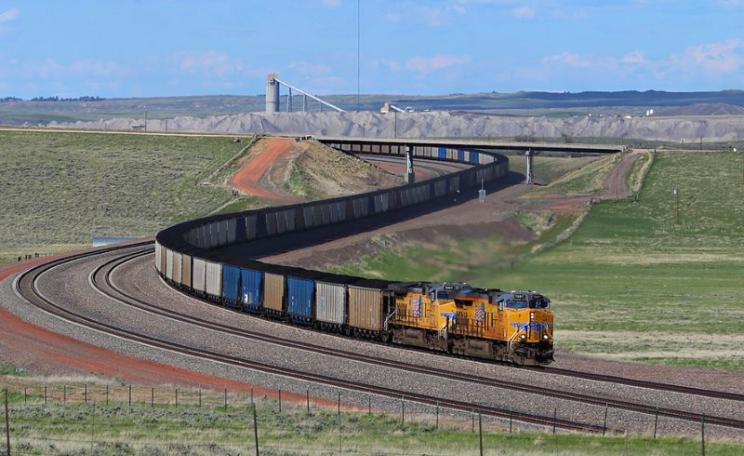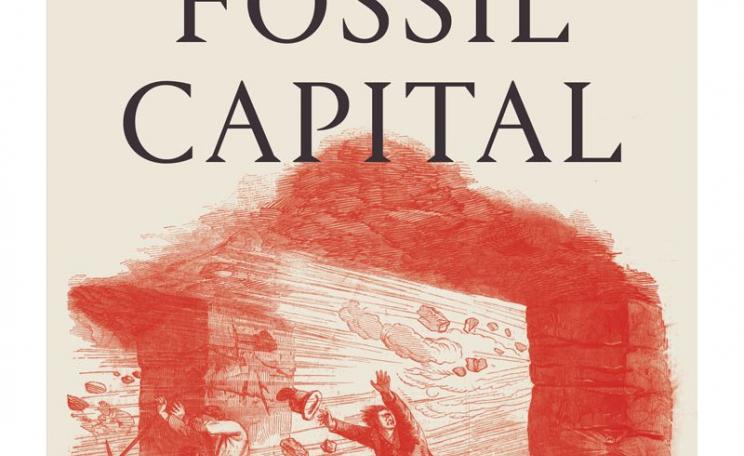The primary concern has become the plight of Indian peasants, Chinese factory workers and African children who are, we are told, being denied a prosperous and dignified life by uncaring environmentalists and climate alarmists.
The winds are changing for the energy giants. And so the black plumes of smoke emitted by the climate deniers in an attempt to provide cover for the coal, oil and gas industry have already been refined.
The free market think tanks funded by dirty energy have spent the last decade claiming there is no global warming. But now their message is subtly different.
The primary concern has become the plight of Indian peasants, Chinese factory workers and African children who are, we are told, being denied a prosperous and dignified life by uncaring environmentalists and climate alarmists.
The most eloquent and charming of the sophists selling this new line of snake oil for the world's most profitable and powerful companies is Matt Ridley: the popular science writer, also a hereditary viscount, a member of the House of Lords, and chairman of the failed Northern Rock bank from 2004 until its failure in 2007.
Fossil fuel divestment
Most recently, he has attacked the Guardian for launching a divestment campaign. "If the world went cold turkey on fossil fuels the people who would suffer most would be the poor", he argues. "Divestment is not an ethical thing to do; it's a harsh, cold-hearted decision."
But Ridley is not paid by the fossil fuel industry to espouse such views. He is the fossil fuel industry. Today, when writing his column for the Times, his diary for the arch-Conservative Spectator magazine, or speaking in the Upper House, he does always declare an interest in coal.
But he point blank refuses to say quite how much cash he is making from the millions of tonnes being hauled from large open cast mines on his expansive country estate in Northumberland. Indeed, he gets very testy indeed if anyone dares ask.
The hereditary aristocrat is not alone in proclaiming there will be great injustice done to the poor if we don't burn coal.
Morano and the Pope
Marc Morano, American spin merchant, recently attacked Pope Francis at a Heartland Insistute event in Rome for daring to call for action to prevent climate change. Morano claimed the Pope would, by his actions, make the poor poorer.
The primary concern has become the plight of Indian peasants, Chinese factory workers and African children who are, we are told, being denied a prosperous and dignified life by uncaring environmentalists and climate alarmists.
He compared the head of the Catholic Church to the pagans who apparently made human sacrifices to prevent bad weather: "Aztec priests encouraged people to sacrifice blood to the gods to end severe drought. Today we are told we need a fundamental transformation of our lives in order to end bad weather ...
"In the past, pagans sacrificed animals and even humans in vain attempts to placate capricious and cruel gods. Today they demand a reduction in CO2 emissions."
Another 'climate sceptic', Lord Lawson, on launching his Global Warming Policy Foundation five years ago, almost sobbed when expressing concern about Chinese factory workers who might find themselves out of work due to emissions targets.
This is the man who helped make two million British factory workers unemployed. The deep concern for the poor has also been expressed by oil companies themselves. Whether the deniers are echoing the fossil fuel industry or were the inventors of this alibi is not entirely clear.
Peabody Energy, the world's largest privately held coal company, has recently launched a well-funded public relations attempt to brand coal the "21st Century Fuel" and the main hope for the desperately poor in Africa.
Denial industry
The change has been a long time coming, and will tell you all you need to know about the climate denial industry. The first point is that the climate deniers are already retreating from their dependence on the argument that climate change isn't actually happening, or is only happening a bit.
This has been predicated on one of the many lines of evidence proving climate change. The surface atmospheric temperature rise since an extraordinary peak in 2003 has not been as rapid as some may have expected.
The expected return of the El Nino weather pattern, during which the ocean dumps heat into the atmosphere, means we are very likely to experience a significant increase in temperatures - with 2015 already set to break records.
The deniers, watching climate science closer than most, recognise that it is time to switch tactics. But do they have a point? The huge prosperity constantly on display, from New York to San Francisco, from London to Moscow, and in the city-scale shopping malls of Riyadh, is the product, largely, of the profligate use of oil.
Surely, if other countries joined the coal, oil and gas bonanza, they too could enjoy flat-screen plasma televisions, short-haul flights to sunnier beaches, and the joy of revving an 8-litre V8 SUV at the traffic lights?
Energy cartels
Professor Timothy Mitchell of Columbia University has recently published Carbon Democracy: Political Power in the Age of Oil with Verso, which contains the most entertaining and compelling history of the coal and oil industries yet published.
The book provides all the evidence you need that the coal and oil industry, from its inception, did everything it possibly could to create cartels and monopolies designed to restrict the supply of fossil fuels - and force up prices.
The history of coal and gas is violent, shameless, dishonest and cruel. The restriction of supply by British and American companies may have kept the wealthy of Washington, DC and London happy, but it forced unnecessary poverty and misery on almost everyone else.
The free market zealots defending the oil companies may also be concerned that the entire enterprise was only made possible by the direct, physical and financial intervention of the state, both in the US and the UK.
Oil and war
It was Winston Churchill who converted the British Navy to oil rather than coal in a move that made this relatively new and undervalued resource sellable, but also contributed to the many causes of the First World War. The British and American secret services supported a coup in Iran in the interests of its oil companies in the 1950s.
The war in Iraq, according to government documents, was to control the supply of oil and, therefore, the price, rather than simply profit from its sale.
The truth is that the developed world needs coal about as much as it needs landline telephones. Energy technology, like communications, has developed well beyond these archaic methods.
What Africa and India are crying out for - just like everyone else - is the best renewable energy and battery technology so that they can bask in the endless daily energy from the sun and leave behind their enforced dependence on Western fossil fuel monopolies.
Brendan Montague writes for DeSmogUK. Follow him on Twitter @Brendanmontague.
This article was originally published on DeSmog.uk/.







